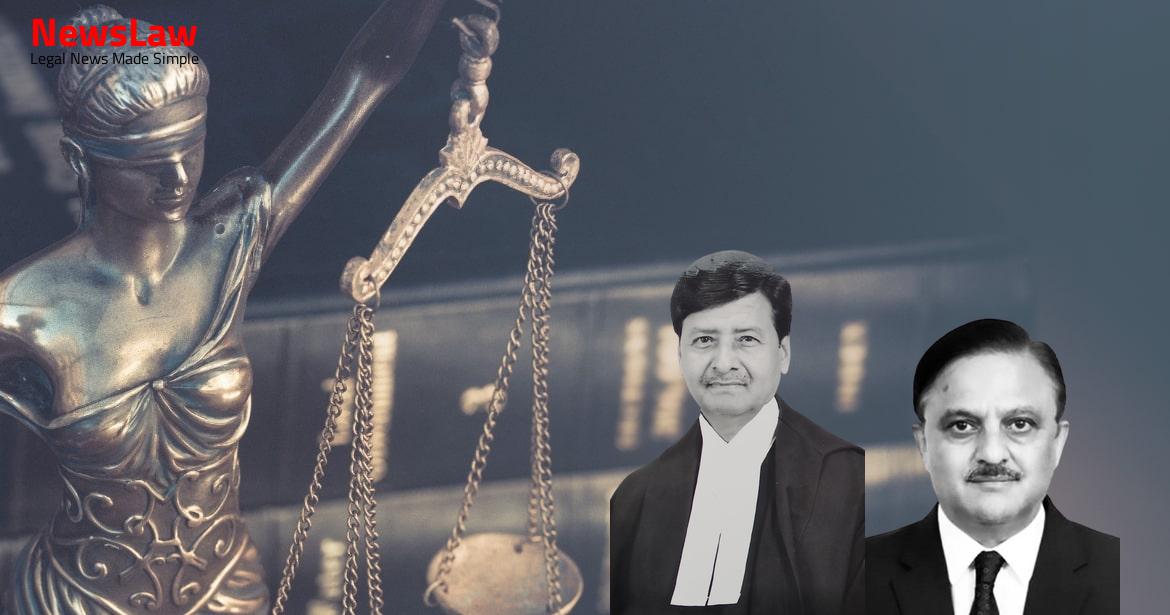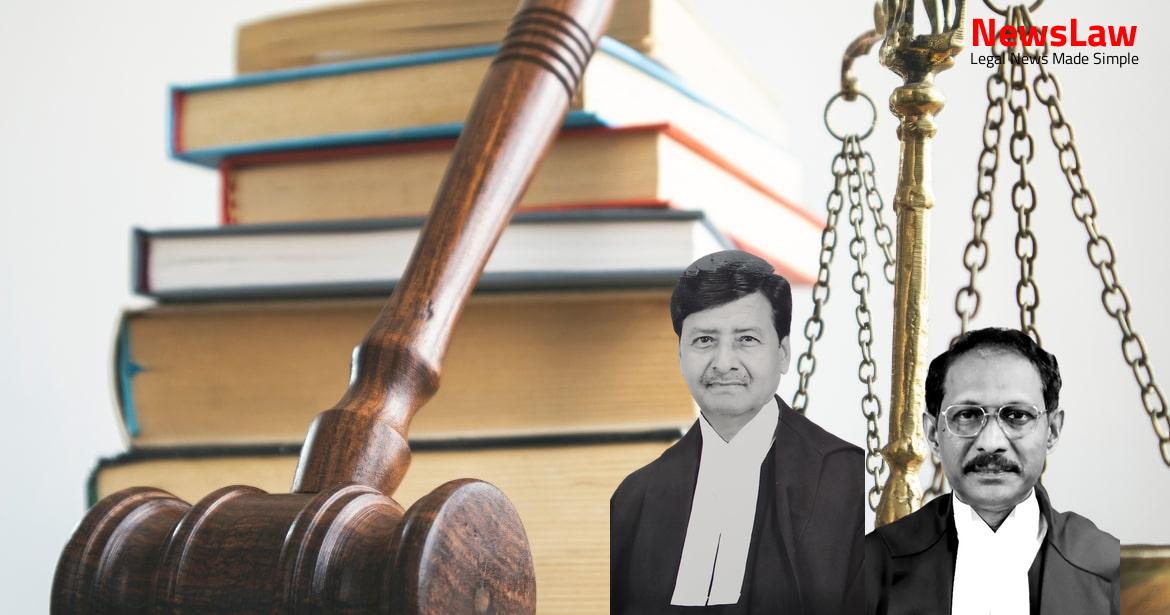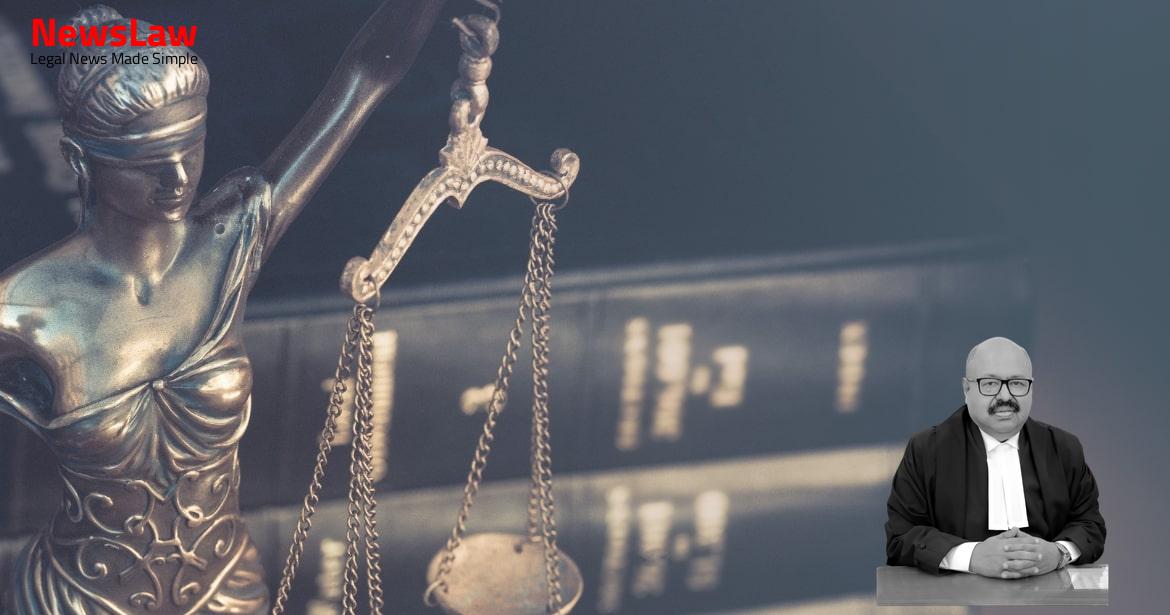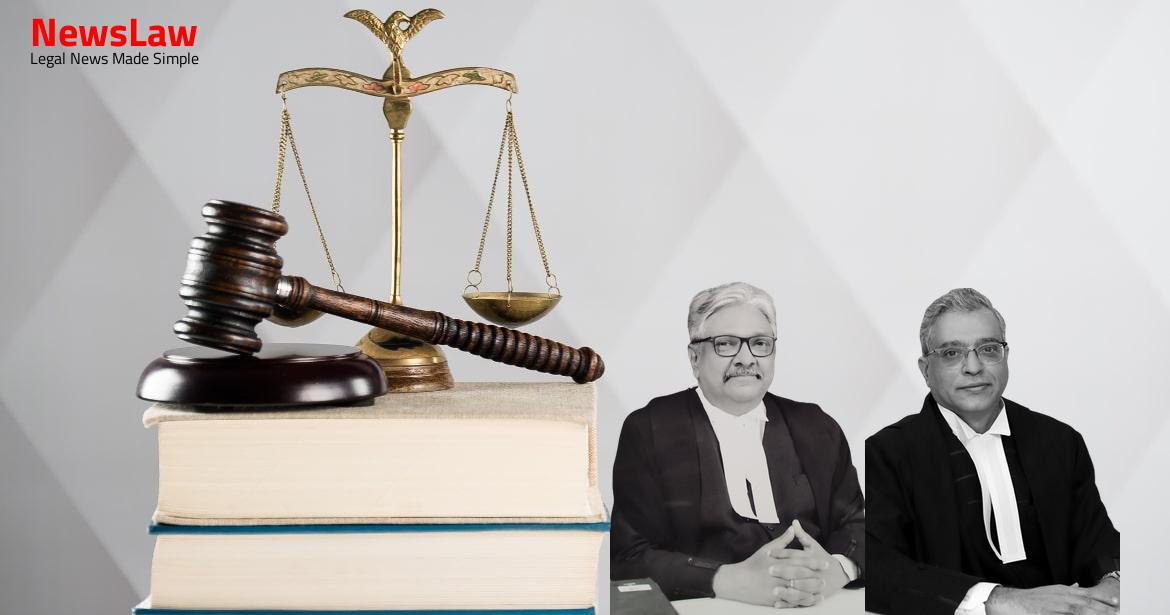Explore the detailed legal analysis of a recent case involving a contribution dispute, where the court examined the liability and interest aspects. The court’s in-depth analysis sheds light on the legal intricacies involved in such disputes, shaping the overall outcome of the case.
Facts
- The appellant filed a writ petition challenging the demand for contribution from March 30, 1975.
- The writ petition was dismissed, and the appellant was held liable to pay the contribution.
- A Letters Patent Appeal was filed by the appellant against the dismissal, but it was also rejected.
- The Insurance Corporation demanded contribution based on Regulations 29, 31, and 33 of the Employees’ State Insurance (General) Regulations, 1950.
- Interest was claimed on the overdue amount according to the regulations.
- Recovery proceedings were initiated against the appellant in July 2006, which was later withdrawn allowing the appellant to make a representation.
- Another notice in July 1990 demanded interest on the overdue sum.
- The appellant challenged the demand by filing an application before the Employees’ Insurance Court.
- The Insurance Corporation directed the appellant to pay interest on delayed contribution amounts for specific periods and at specific rates, which was to be paid within fifteen days.
- Notices of demand were eventually quashed.
- Employees’ Insurance Court declared appellant liable to comply with the Act from 1 April 1988
- Appellant not liable for period before 1 April 1988
- Gujarat High Court allowed appeal, stating Head Office covered by Act in 1975
- Employees in Branch Office in Gujarat covered by Act’s benefits
Also Read: Recovery of Misappropriated Temple Funds: Court’s Legal Analysis
Arguments
- The liability of the appellant was crystalized on 10 July 2006.
- Arrears of contribution became payable only from 10 July 2006.
- Interest cannot be demanded for the period prior to 10 July 2006.
- There was no power to frame Regulations for levy of interest prior to specific dates mentioned.
- The power to levy interest could not have been conferred on the Insurance Corporation through Regulations without statutory power.
- Principal employer is liable to pay simple interest at the rate specified in Regulations.
- Interest was demanded by the Insurance Corporation before the statutory provision on interest came into effect on 20 October 1989.
- The legal position regarding liability to pay contribution was first crystalized on 10 July 2006.
- The respondent’s counsel argued that as per the decision in the case of M/s. Goetze (India) Ltd. v. Employees’ State Insurance Corporation, there is no power to waive interest.
- The interest demanded from the appellant is in accordance with Regulation 31-A of the said Regulations.
Also Read: Legal Analysis in Assault and Homicide Case
Analysis
- Interest at the rate of 12% is payable as per clause (a) of sub-section 5 of Section 39 of the said Act of 1948 from 20th October 1989 onwards.
- Interest at the rate of 6% per annum was demanded for the period prior to 20th October 1989 as per unamended Regulation 31-A.
- The liability of the appellant to pay contribution from 30th March 1975 onwards has been affirmed by the Gujarat High Court, and therefore, the demand for contribution cannot be questioned.
- The appellant has not challenged the validity of Regulation 31-A, which mandates the payment of interest at the specified rates.
- The appellant’s plea for waiver of interest under Article 142 has been considered.
- The court held that there is no power under the said Act of 1948 to waive statutory interest.
- Only for the arrears of contribution payable after 19th October 1989, interest at the rate of 12% is claimed in accordance with the Act.
- No evidence was presented to show that better medical facilities were provided by the appellant to its employees
- Power under Article 142 of the Constitution of India was not exercised due to lack of evidence
- Decision regarding the case was based on the peculiar facts presented
- The object of the Factories Act of 1948 was fulfilled without payment of contribution
Also Read: Legal Analysis in Disciplinary Action Case
Decision
- This part of the judgment focuses on the appeal made by the appellant.
- The judgment states that there is no merit found in the appeal.
- The reasoning behind rejecting the appeal is not specified in this part of the judgment.
Case Title: TRANSPORT CORP.OF INDIA LTD. SANTNU PATRA MANAGER LEGAL Vs. EMPLOYEE STATE INSURANCE CORP.. DEPUTY REGIONAL DIRECTOR (2021 INSC 694)
Case Number: C.A. No.-003135-003135 / 2011



